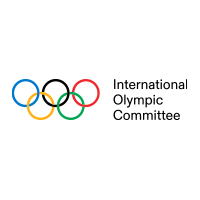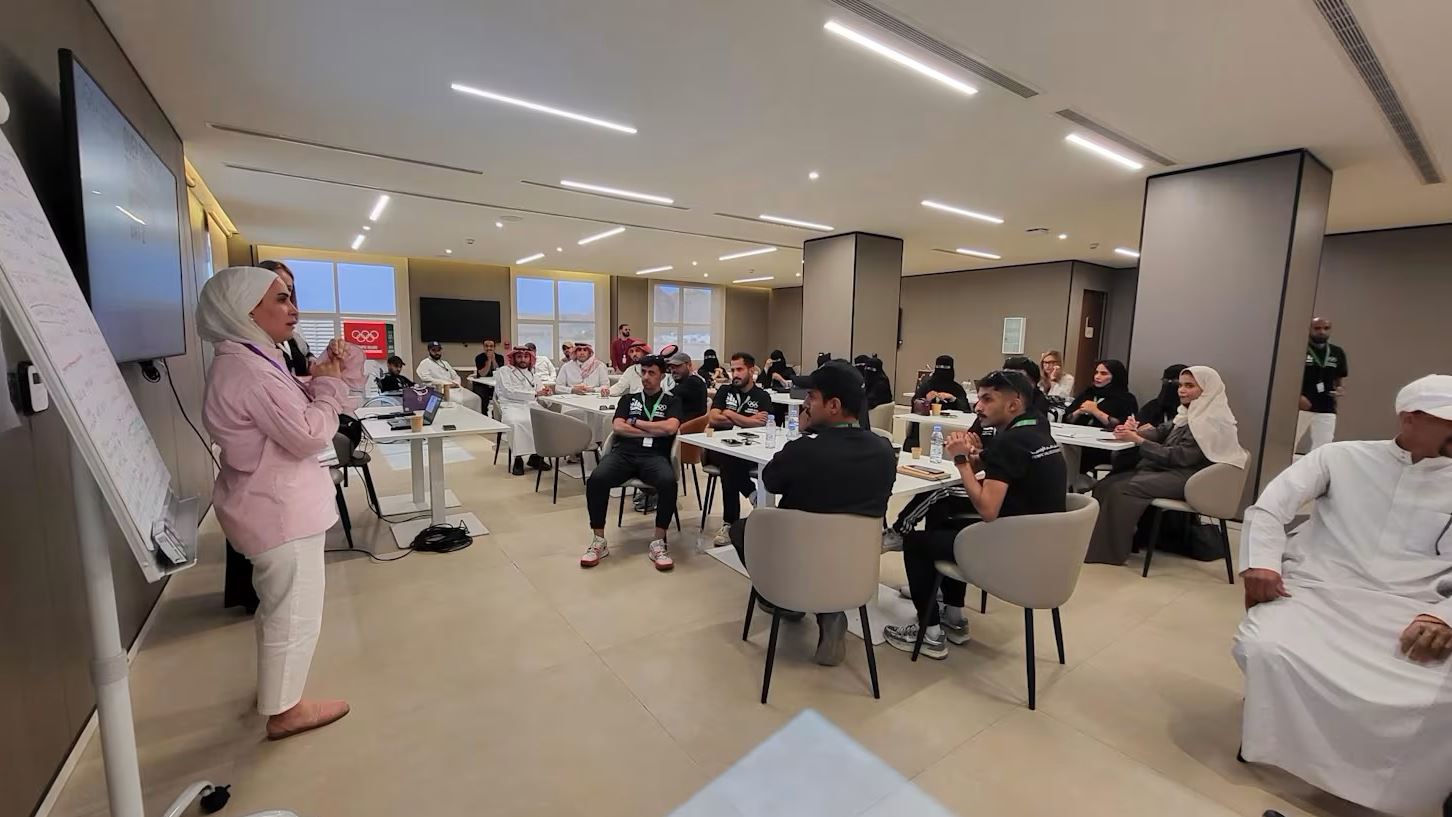15 May 2025 - Established in 2005 and winner of the prestigious “Nurturing Values and Ethics Award” at the Reimagine Education Awards (also known as the “Oscars of education”) in 2024, the Olympic Values Education Programme (OVEP) has reached another milestone with a series of three projects in Saudi Arabia in April 2025
The first project took place in the historic city of AlUla, where the Olympic Museum team, which manages the programme, delivered a two-day “Train the Trainer” workshop aimed at empowering 35 local teachers and coaches, in collaboration with the Saudi Olympic Academy and the Royal Commission of AlUla (RCU). The inclusive workshop, which brought together male and female participants and trainers, focused on how to embed the Olympic values into everyday teaching practices, and encouraged participants to design community-based projects that promote excellence, respect and friendship.
“Such training represents a unique opportunity for intercultural dialogue and a rich human and social experience,” said IOC Head of International Cultural Affairs Frédérique Jamolli. “Above all, it stands as a powerful demonstration of the strength of the universal values promoted by Olympism.”
The participants wasted no time in implementing their learnings. Two weeks later, an OVEP-inspired programme was launched at a local girls' school, which included activities for students with disabilities. An event was also hosted to highlight the Olympic values and introduce archery to girls and boys and their families.
"What I like about the Olympic values is that they focus on the human side before the sport," said Asmaa Odeh Al-Juhani, one of the young female participants. "It's a reminder that sport is not just about winning and losing, but about values, cooperation and tolerance. I enjoyed and benefitted a lot from these courses, and I hope to see these values being shared in schools and clubs. They make us stronger and better people, and help us build a society that respects each other".

A second project was held in Riyadh with the first module of the Olympic Studies Diploma, entitled “Olympic Education and Values Education”. The Olympic Studies Diploma, owned and organised by the Saudi Olympic Academy, in collaboration with the International Olympic Academy, introduces participants to concepts that are closely related to management of sports organisations, Olympic education, the Olympic values, sports policies, legal frameworks, international relations and the Olympic Movement. This time, OVEP was positioned as a foundational module designed to provide participants with a deep understanding of how the Olympic values can be applied in contemporary educational settings. As a result, eight projects were proposed by the participants at the end of the module, with many of them moving straight to the planning phase.
“What sets OVEP apart is the care we take to adapt each experience to the local context,” said OVEP lead Xenia Kourgouzova. “This emphasis on adaptability was key in Saudi Arabia, where each initiative was tailored to make the Olympic values truly relevant to the communities involved."
Last but not least, a seminar entitled “Olympic Education and Teaching Values” was held at the College of Sport Sciences and Physical Activity at Princess Nourah bint Abdulrahman University (PNU) in Riyadh. With over 33,000 students, PNU is the largest women's university in the world. Its College of Sport Sciences and Physical Activity, inaugurated in 2024, represents a significant stride in promoting women's participation in sport and cultivating a new generation of female sports professionals and leaders within the Kingdom.
About the Olympic Values Education Programme (OVEP)
Created in 2005 and managed by the Olympic Museum, OVEP consists of a series of free and easily accessible teaching resources that complement school curricula using the context of Olympic sports and the Fundamental Principles of Olympism. OVEP communicates the long-term benefits of sport and physical activity through an understanding of Olympism and its impact on individual health, enjoyment and social interaction. For more information, visit the programme’s website.

